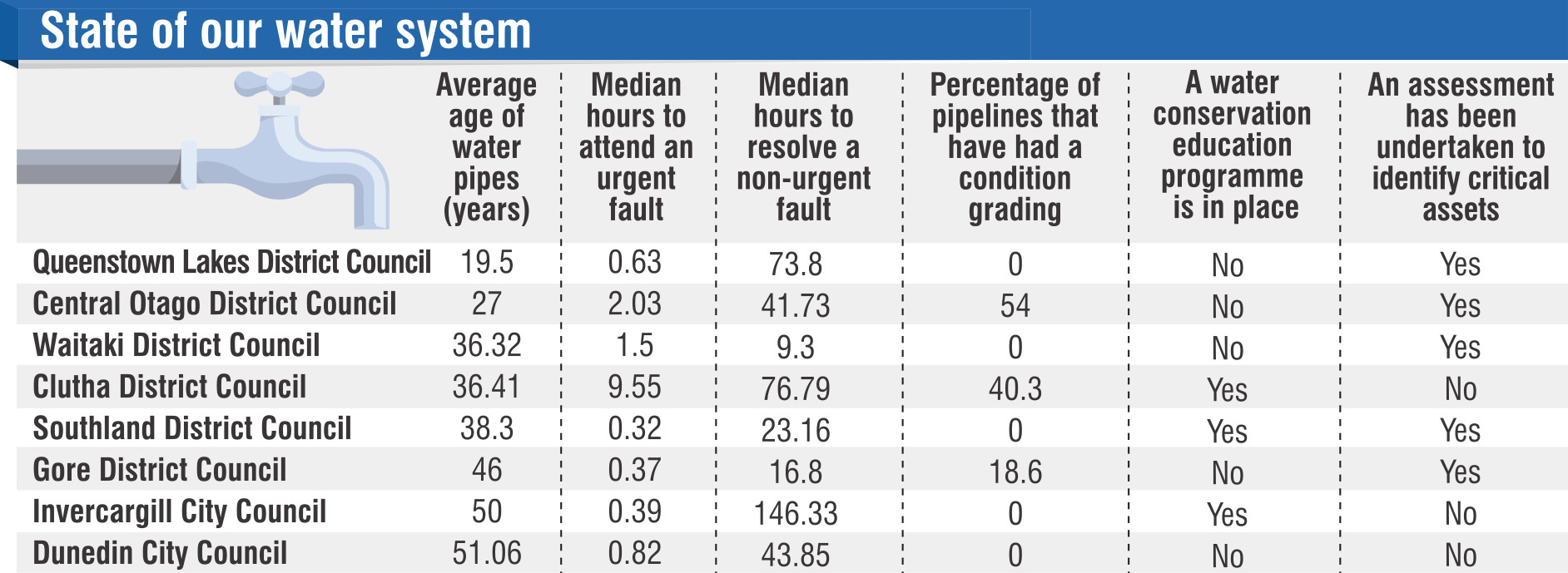
Information collated by national water regulator Taumata Arowai shows Invercargill in much the same situation.
However, Dunedin city councillor Jim O’Malley said the standardised reporting could in some ways provide a misleading impression and Dunedin was, in reality, in the top bracket for getting its systems and investment right.
Many of the city’s pipes were old, but this did not mean they were in bad nick, Cr O’Malley said.
"We have a mature system," he said.
"We have developed sophistication ... we invest in it when we need to.
"Taumata Arowai is pretty happy with us."
Councils in the lower South Island mostly scored zeroes for the percentage of pipelines that had received a condition grading.
The Gore, Clutha and Central Otago district councils had all done some verified grading assessment.
Dunedin’s water pipes had an average age of just over 51 years and Invercargill was at 50 and neither city council was considered to have undertaken an assessment for identifying critical assets.
A "no" was also recorded for the Dunedin City Council — and for the Central Otago, Gore, Queenstown Lakes and Waitaki district councils — for having a water conservation education programme in place.
However, the city council said it did have an education programme.
This included website notices and social media posts and it was tailored to particular needs or seasonal variations, a Dunedin City Council spokesman said.
The council categorised its pipeline assets as main interceptors, branches or normal reticulation assets, "which is sufficient for criticality purposes".
The council had embarked on a multi-year programme of renewing pipelines and would be working through various communities on a priority basis, he said.
Cr O’Malley said the regulator was in its early years and he expected the measures would be refined.
Councils in the South did quite well in the measures for resolving faults — at least compared with Wellington Water.
The median number of hours in Dunedin for resolving non-urgent faults was just under 44.
In Wellington, it exceeded 818 (34 days) and it was an appalling 552 hours before non-urgent faults were even attended to.
Wellington had also graded all of its network and 31% of its pipelines were judged to be in poor or very poor condition.
The Wairoa district had the oldest average age of pipes — at 100.
Taumata Arowai chief executive Allan Prangnell said reports it released yesterday showed most people had access to safe drinking water.
However, they also highlighted underlying risks.
"The data indicates that around 489,000 people ... are receiving water from a public supply with no protozoa barrier.
"This is significant, given the lack of a protozoa barrier was identified as a likely factor in the outbreak of cryptosporidiosis in Queenstown last year."
More work was needed to clearly understand condition of infrastructure, he said.
Loss of water through leaks was also an issue.
Gore District Mayor Ben Bell said the government was clearly pushing towards water metering of communities, as meters were the primary tool to track water loss.
Data would improve over time, he said.
"The Gore district has budgeted for more assessments of our networks, which, as the report suggests, will help us make more proactive rather than reactive decisions."











